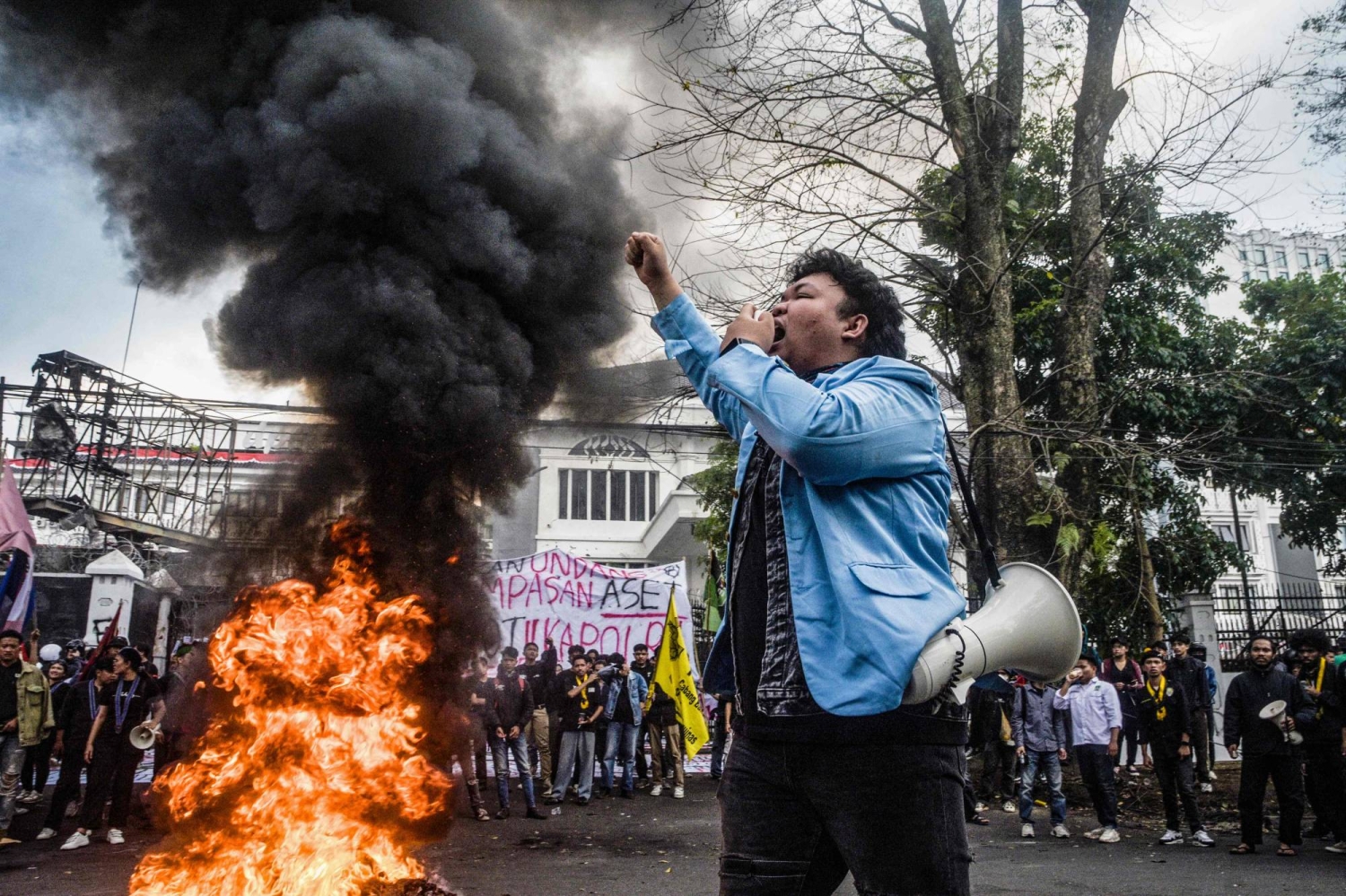In an unexpected development, Indonesia’s President has made major policy changes after a wave of violent protests led to the cancellation of a scheduled diplomatic trip to China. The disturbances, which spread through various cities, underscored significant societal and economic discontent, pushing the government to reevaluate its domestic and international strategies. This situation highlights the fragile equilibrium Indonesia must maintain as it handles internal challenges while upholding its position internationally.
The demonstrations commenced earlier this week and swiftly intensified into fierce confrontations between protesters and law enforcement. People gathered in the streets to voice their discontent regarding increasing living expenses, recent economic policies, and an alleged lack of government attention to public well-being. In various locations, the protests became fatal, resulting in numerous deaths and hundreds of injuries. The severity of the protests, alongside increasing public anger, rendered it unfeasible for the president to attend the scheduled summit in China, which was aimed at enhancing bilateral trade and investment relations.
Analysts observe that canceling the summit visit stands out as an uncommon example of swift policy adjustment due to internal turmoil. By postponing the journey, the president demonstrated the gravity of the national situation and placed more importance on addressing the public’s issues than on international diplomatic engagements. This decision highlights the realization that public backing is crucial for enduring political stability and economic growth in a nation as varied and populous as Indonesia.
The measures declared by the president consist of actions designed to lessen the financial strain on families, focusing mainly on communities with lower incomes. These actions incorporate temporary aid for essential products, modifications to fuel costs, and an examination of debated economic changes that had triggered the first wave of protests. Authorities have stressed that these initiatives aim to show a commitment to public opinion and rebuild confidence between the government and its citizens.
In addition to providing urgent financial aid, the administration has promised to involve a wider range of consultations with civil organizations, labor unions, and regional leaders to guarantee that upcoming policies include a more participatory decision-making process. This strategy seeks to avoid additional unrest by establishing avenues for communication and cooperation, allowing citizens to have a direct role in influencing economic and social changes.
The cancellation of the China summit, while significant diplomatically, also carries implications for Indonesia’s foreign policy strategy. China is a major trading partner and investor in Southeast Asia, and the visit had been expected to solidify agreements on infrastructure projects, trade deals, and strategic cooperation. By postponing the trip, Indonesia temporarily delays these negotiations, which could affect timelines for ongoing initiatives such as port development, energy projects, and technology collaborations. However, analysts suggest that the government’s domestic stability measures are likely to enhance its negotiating position in the long term, demonstrating a commitment to a stable, well-governed environment.
Public reaction to the president’s concessions has been mixed. Some citizens view the policy adjustments as a positive step toward addressing systemic inequalities and ensuring that economic growth benefits a broader segment of society. Others remain skeptical, questioning whether these measures are sufficient to tackle the root causes of widespread discontent. Social media platforms have been filled with debate, reflecting the country’s diverse opinions and the high level of civic engagement among Indonesians.
The duties of police and emergency services have also faced examination. Authorities were sent to manage order during the protests, but allegations of undue force have led to demands for increased transparency and change. Civil rights groups have stressed the importance of measured actions that safeguard public security while respecting the right to peaceful protest. These conversations are anticipated to shape forthcoming plans for managing civil disorder and ensuring that demonstrations stay peaceful.
Economists warn that the protests and subsequent policy concessions may have short-term economic repercussions, including market volatility, disruptions to trade, and delays in foreign investment projects. However, many agree that these steps are crucial for maintaining long-term stability. Ensuring that citizens feel heard and protected can foster a more resilient economy, encourage sustainable development, and prevent deeper social fractures.
The Indonesia case also highlights broader regional implications. Southeast Asia is home to several emerging economies facing similar challenges of balancing rapid growth with social equity and public satisfaction. Indonesia’s response to domestic unrest offers lessons for neighboring countries on crisis management, the importance of proactive communication, and the value of prioritizing citizen welfare alongside international commitments.
Specialists highlight that it is crucial for the government to persist in observing the social and economic environments to avoid potential escalations. Proposed strategies involve enhancing social welfare nets, developing tailored job programs, and increasing clarity in policy formulation. Good communication with the populace, along with prompt and impactful measures, will be essential in ensuring that the public views the government as attentive and responsible.
The event also prompts inquiries regarding the relationship between internal politics and global diplomacy. While leaders typically aim to convey consistency and reliability internationally, unforeseen domestic challenges can necessitate tough compromises. In this scenario, the president’s choice to call off the China summit signifies a deliberate emphasis on national stability rather than immediate diplomatic involvement. Analysts propose that this strategy could, in the long run, enhance Indonesia’s reputation globally by illustrating a dedication to accountable leadership.
Alongside modifications in policies, the administration has initiated outreach programs to clarify the reasons for the decisions and gather input from impacted communities. Public meetings, internet platforms, and partnerships with local officials are employed to involve citizens directly. Through promoting open discussion and clarity, the government seeks to restore confidence and motivate meaningful involvement in developing future strategies.
The events in Indonesia also underscore the importance of crisis preparedness in modern governance. Governments must be ready to respond rapidly to social, economic, and political disruptions while maintaining essential functions and safeguarding international relationships. Effective crisis management involves a combination of strategic planning, adaptive leadership, and open communication with both domestic and foreign stakeholders.
Anticipating future developments, Indonesia confronts the task of executing the declared concessions efficiently as it gets ready to reintegrate into global discussions, such as the postponed summit with China. Achieving success will rely heavily on the meticulous collaboration among government officials, the public sector, corporate executives, and foreign allies. The skill to harmonize internal stability with international relations is expected to shape the government’s reputation both nationally and internationally.
The recent demonstrations and resulting policy changes in Indonesia demonstrate the intricate relationship between internal management and global diplomacy. By addressing public demands and delaying an important foreign trip, the president has shown a readiness to place public well-being at the forefront while managing tough economic and social scenarios. The upcoming months will be crucial for evaluating the success of these actions, the strength of public confidence, and the nation’s ability to continue its diplomatic missions with stability. Indonesia’s situation provides useful lessons in crisis management, the critical role of adaptive leadership, and the lasting importance of harmonizing national priorities with global objectives.




